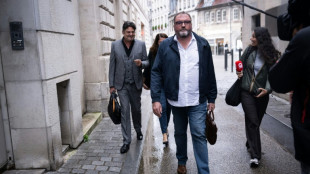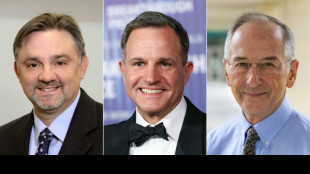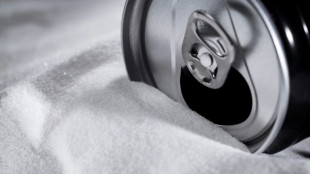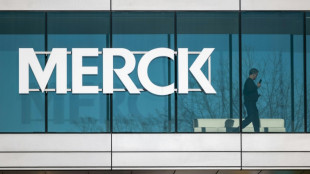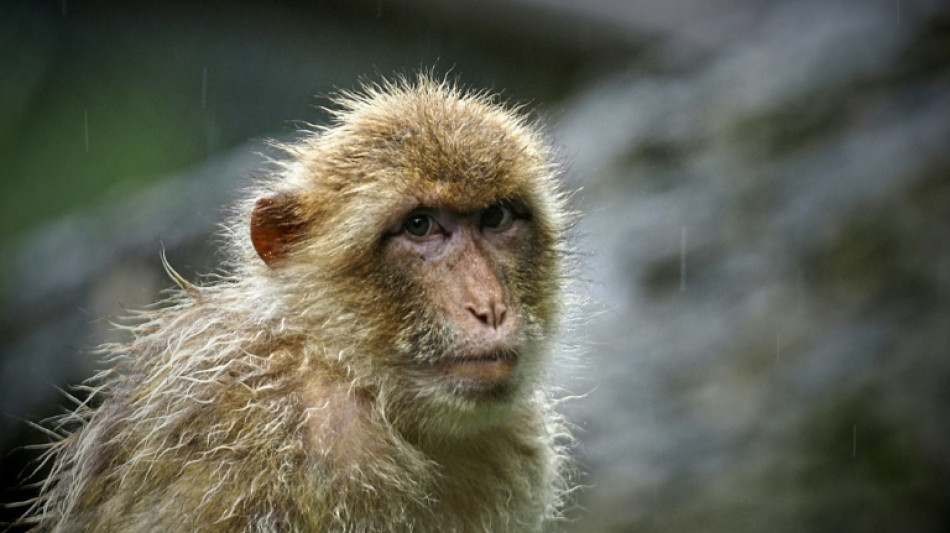
-
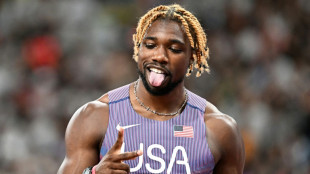 Lyles, Thompson and Tebogo cruise through world 100m heats
Lyles, Thompson and Tebogo cruise through world 100m heats
-
Vuelta final stage shortened amid protest fears

-
 Collignon stuns De Minaur as Belgium take Davis Cup lead over Australia
Collignon stuns De Minaur as Belgium take Davis Cup lead over Australia
-
Nepal returns to calm as first woman PM takes charge, visits wounded
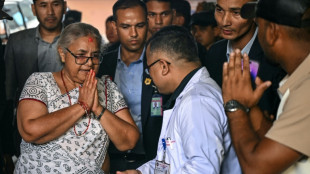
-
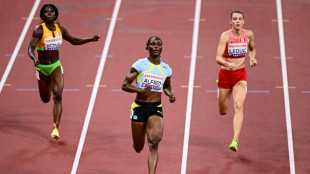 Olympic champion Alfred eases through 100m heats at Tokyo worlds
Olympic champion Alfred eases through 100m heats at Tokyo worlds
-
Winning coach Erasmus 'emotional' at death of former Springboks
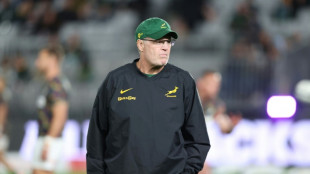
-
 Barca's Flick blasts Spain over Yamal injury issue
Barca's Flick blasts Spain over Yamal injury issue
-
Rampant Springboks inflict record 43-10 defeat to humble All Blacks

-
 Italy's Bezzecchi claims San Marino MotoGP pole as Marquez brothers denied
Italy's Bezzecchi claims San Marino MotoGP pole as Marquez brothers denied
-
Rampant South Africa inflict record 43-10 defeat on All Blacks

-
 Collignon stuns De Minaur as Belgium take 2-0 Davis Cup lead over Australia
Collignon stuns De Minaur as Belgium take 2-0 Davis Cup lead over Australia
-
Mourning Nepalis hope protest deaths will bring change
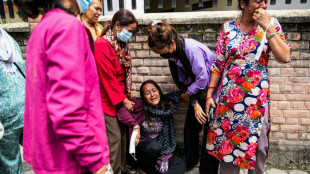
-
 Carreras boots Argentina to nervy 28-26 win over Australia
Carreras boots Argentina to nervy 28-26 win over Australia
-
Nepal returns to calm as first woman PM takes charge
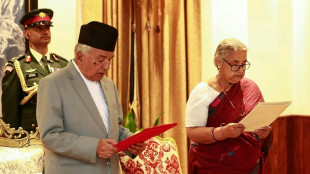
-
 How mowing less lets flowers bloom along Austria's 'Green Belt'
How mowing less lets flowers bloom along Austria's 'Green Belt'
-
Too hot to study, say Italian teachers as school (finally) resumes
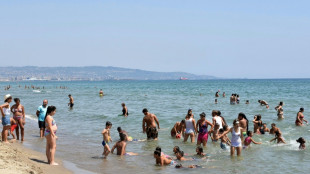
-
 Alvarez, Crawford both scale 167.5 pounds for blockbuster bout
Alvarez, Crawford both scale 167.5 pounds for blockbuster bout
-
Tokyo fans savour athletics worlds four years after Olympic lockout

-
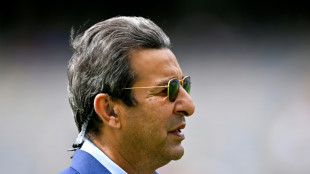 Akram tells Pakistan, India to forget noise and 'enjoy' Asia Cup clash
Akram tells Pakistan, India to forget noise and 'enjoy' Asia Cup clash
-
Kicillof, the Argentine governor on a mission to stop Milei
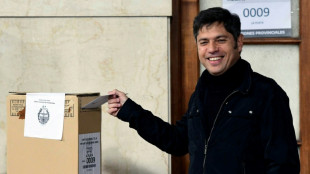
-
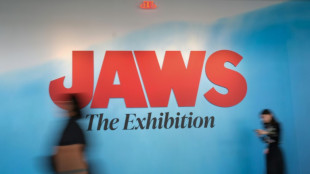 Something to get your teeth into: 'Jaws' exhibit marks 50 years
Something to get your teeth into: 'Jaws' exhibit marks 50 years
-
Germany, France, Argentina, Austria on brink of Davis Cup finals

-
 War with Russia weighs heavily on Ukrainian medal hope Doroshchuk
War with Russia weighs heavily on Ukrainian medal hope Doroshchuk
-
Suspect in Charlie Kirk killing caught, widow vows to carry on fight

-
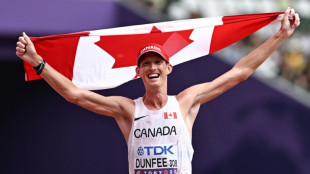 Dunfee and Perez claim opening world golds in Tokyo
Dunfee and Perez claim opening world golds in Tokyo
-
Ben Griffin leads PGA Procore Championship in Ryder Cup tune-up

-
 'We're more than our pain': Miss Palestine to compete on global stage
'We're more than our pain': Miss Palestine to compete on global stage
-
Ingebrigtsen seeks elusive 1500m world gold after injury-plagued season
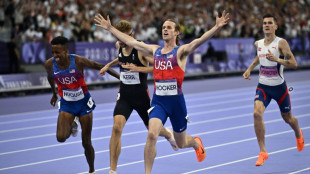
-
 Thailand's Chanettee leads by two at LPGA Queen City event
Thailand's Chanettee leads by two at LPGA Queen City event
-
Dolphins' Hill says focus is on football amid domestic violence allegations
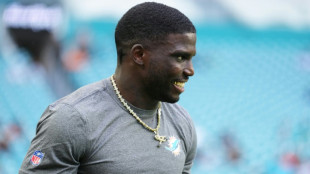
-
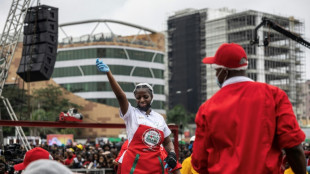 Nigerian chef aims for rice hotpot record
Nigerian chef aims for rice hotpot record
-
What next for Brazil after Bolsonaro's conviction?
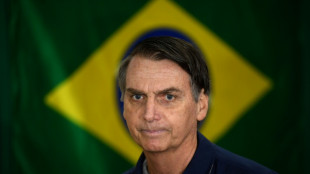
-
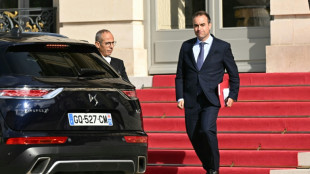 Fitch downgrades France's credit rating in new debt battle blow
Fitch downgrades France's credit rating in new debt battle blow
-
Fifty reported dead in Gaza as Israel steps up attacks on main city
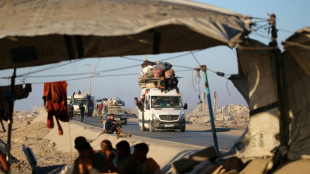
-
 Greenwood among scorers as Marseille cruise to four-goal victory
Greenwood among scorers as Marseille cruise to four-goal victory
-
Rodgers calls out 'cowardly' leak amid Celtic civil war
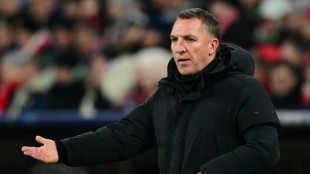
-
 Frenchman Fourmaux grabs Chile lead as Tanak breaks down
Frenchman Fourmaux grabs Chile lead as Tanak breaks down
-
Germany, France, Argentina and Austria on brink of Davis Cup finals

-
 New coach sees nine-man Leverkusen beat Frankfurt
New coach sees nine-man Leverkusen beat Frankfurt
-
US moves to scrap emissions reporting by polluters
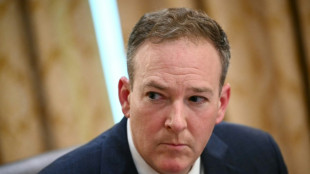
-
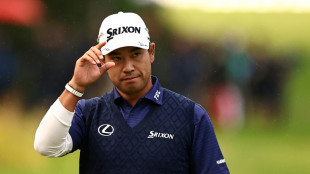 Matsuyama leads Ryder Cup trio at PGA Championship
Matsuyama leads Ryder Cup trio at PGA Championship
-
US to stop collecting emissions data from polluters
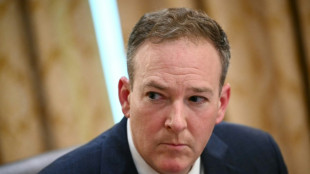
-
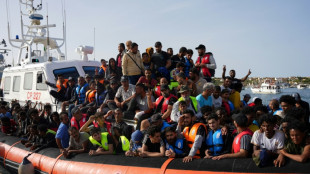 Pope Leo thanks Lampedusans for welcoming migrants
Pope Leo thanks Lampedusans for welcoming migrants
-
Moscow says Ukraine peace talks frozen as NATO bolsters defences
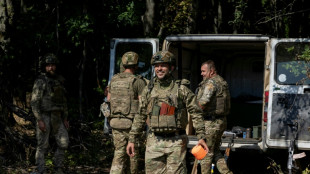
-
 Salt's rapid ton powers England to record 304-2 against South Africa in 2nd T20
Salt's rapid ton powers England to record 304-2 against South Africa in 2nd T20
-
Noah Lyles: from timid school student to track's showman

-
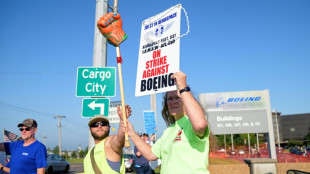 Boeing defense workers reject deal to end strike
Boeing defense workers reject deal to end strike
-
Germany, Argentina close in on Davis Cup finals

-
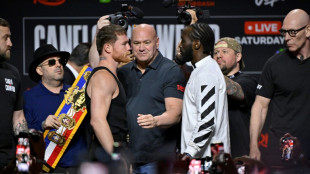 Alvarez, Crawford both tip scales at 167.5 pounds for title bout
Alvarez, Crawford both tip scales at 167.5 pounds for title bout
-
Armani will lays path to potential buyout by rival
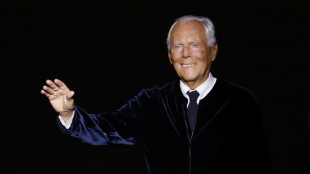

Ebola-infected monkeys cured with a pill, raising hopes for humans: study
Monkeys infected with Ebola can be cured with a pill, according to a new study out Friday that could pave the way for more practical, affordable treatments in humans.
First identified in 1976 and thought to have crossed over from bats, Ebola is a deadly viral disease spread through direct contact with bodily fluids, causing severe bleeding and organ failure.
Because outbreaks primarily affect sub-Saharan Africa, pharmaceutical companies have lacked financial incentives to develop treatments, and the sporadic nature of outbreaks has made clinical trials difficult.
A vaccine was only widely approved in 2019, and while two intravenous antibody treatments improve outcomes, they require costly cold storage and are difficult to administer in some of the world's poorest regions.
"We're really trying to come up with something that was more practical, easier to use, that could be used to help prevent, control, and contain outbreaks," Thomas Geisbert, a virologist at The University of Texas Medical Branch at Galveston, who led the new study published in Science Advances, told AFP.
For their experiment, Geisbert and colleagues tested the antiviral Obeldesivir, the oral form of intravenous Remdesivir, originally developed for Covid-19.
Obeldesivir is a "polymerase inhibitor," meaning it blocks an enzyme crucial for viral replication.
The team infected rhesus and cynomolgus macaques with a high dose of the Makona variant of the Ebola virus.
A day after exposure, ten monkeys then received an Obeldesivir pill daily for ten days, while three control monkeys received no treatment and died.
Obeldesivir protected 80 percent of the cynomolgus macaques and 100 percent of the rhesus macaques, which are biologically closer to humans.
The drug not only cleared the virus from the treated monkeys' blood but also triggered an immune response, helping them develop antibodies while avoiding organ damage.
Geisbert explained that while the number of monkeys was relatively small, the study was statistically powerful because they were exposed to an extraordinarily high dose of the virus -- roughly 30,000 times the lethal dose for humans. This reduced the need for additional control monkeys, limiting unnecessary animal deaths.
The researcher, who has worked on Ebola since the 1980s and is credited with discovering the Reston strain, said one of the most exciting aspects of Obeldesivir is its "broad-spectrum" protection, compared to the approved antibody treatments that only work against the Zaire species of Ebola.
"That's a huge advantage," Geisbert said.
Pharmaceutical maker Gilead is currently advancing Obeldesivir to Phase 2 clinical trials for Marburg virus, a close relative of Ebola.
Geisbert also emphasized the importance of funding from the US National Institutes of Health, amid reports that dozens of grants have been canceled under President Donald Trump's administration.
"All these drugs and vaccines that were developed against Ebola and a lot of these exotic viruses and pathogens -- 90 percent of the money comes from the US government," he said, adding, "I think the general public would agree we need treatments for Ebola."
R.Fischer--VB

